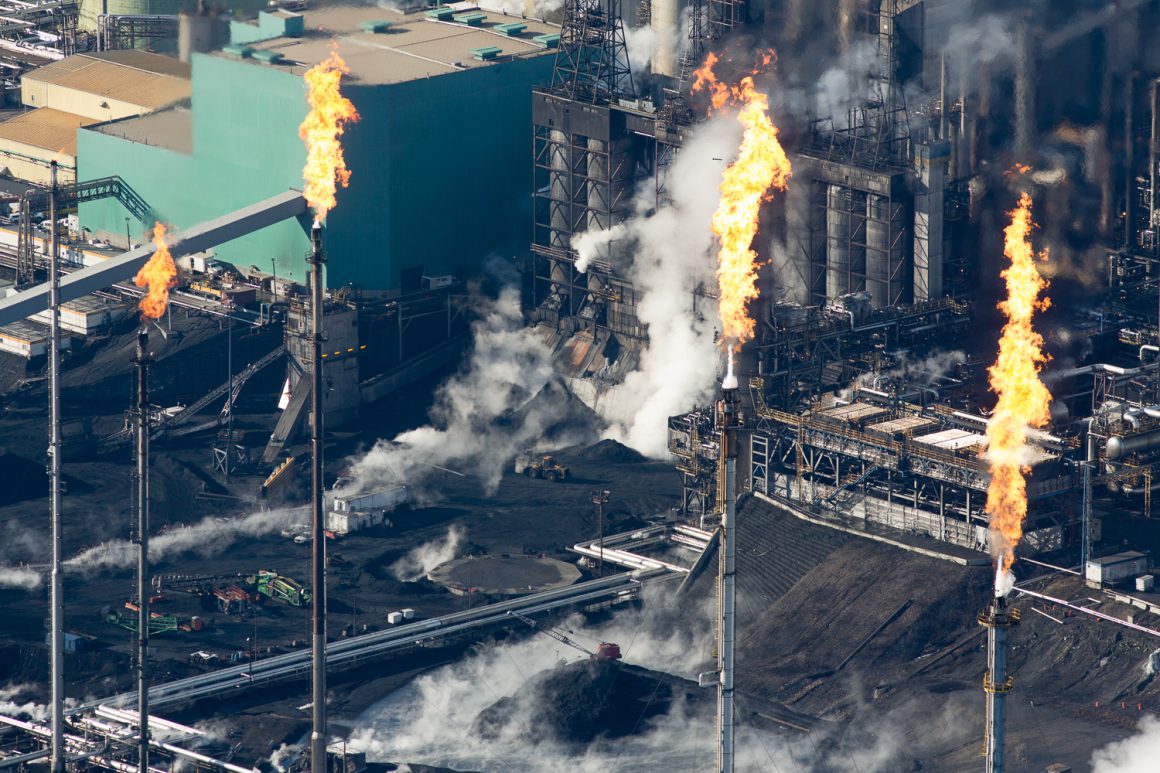By Manus Lenihan
Climate change is no longer just a distant threat. The town of Fort McMurray in Canada burned for months earlier this year, part of a trend towards far more intense wildfires across the world. Extreme weather events have tripled since the 1960s.
The Arctic could be ice-free in the summer by 2020. It’s now too late to prevent runaway global warming and unpredictable feedback effects. But it’s never too late to stop doing damage and begin undoing it, and that demands that we break from the logic of the capitalist system.
Indifference of the system
Big business and governments have had decades to react to global warming – and emissions have gotten worse. Last year Volkswagen were caught hiding the polluting effects of their cars. The auto industry as a whole has plans for years and decades ahead involving fossil-fuel-based vehicles. In China, even while much is made of new investment in green energy, permits for 210 new coal-fired power stations were issued in 2015.
Bigot and would-be US president Donald Trump tweeted in 2012 that “The concept of global warming was created by and for the Chinese to make US manufacturing non-competitive”. This sound-bite, however idiotic, reminds us what the real issues are: no capitalist government is going to seriously tackle climate change because they don’t want to place any burdens on their major companies.
Political leaders usually at least pay lip service to the environment, but in the final analysis you judge people by their actions. Right now, the US government, banks and big business are fighting hard against Native American tribes to force the Dakota Access Pipeline across their lands and waters so as to pump half a million barrels of crude oil daily from North Dakota to Illinois. The biggest gathering of Native Americans in generations is the only thing that has succeeded in putting this project on hold.
Our future under threat
2014 saw a historic “Climate Justice” march of 300,000 people in New York City. The march was bulked up by people from communities already affected by climate change. For them, it isn’t some abstract concept: it’s their livelihoods and homes and health.
A smaller example is in Ireland itself, where local people in Enniskillen have fought hard against fracking. Struggles like this can mitigate the effects of climate change.
While the world was waiting for new technology or a sudden turn in policy to fix everything, the planet’s temperatures passed the tipping point. If capitalism hasn’t come anywhere close to a transition to renewable energy yet, then we have to ask how long we’re supposed to stand around waiting for a solution while thousands perish in droughts, floods and storms.
A socialist green economy
The bottom line is that companies that exist for profit are simply incapable of doing what needs to be done: leaving the fossil fuels in the ground and generating energy by other means. This is why capitalist governments, who always tiptoe around big business, won’t put their money where their mouths (occasionally) are.
We need a green socialist plan for the economy, based on public ownership of the main industries and democratic planning. A rapid transition to renewable energy, public transport and retrofitting of homes and workplaces would create many thousands of well-paid, sustainable jobs.
Cities and coastlines will need serious public works projects to begin climate change-proofing. Workers in carbon-reliant industries can’t be thrown on the scrap-heap – they need guaranteed retraining and re-employment. The problem is not the human race itself, but the system we live under: we need to move beyond capitalism. We have the technology and the will – but we need to live under a system based on democracy and collective ownership to put into effect this desire to save the environment.












